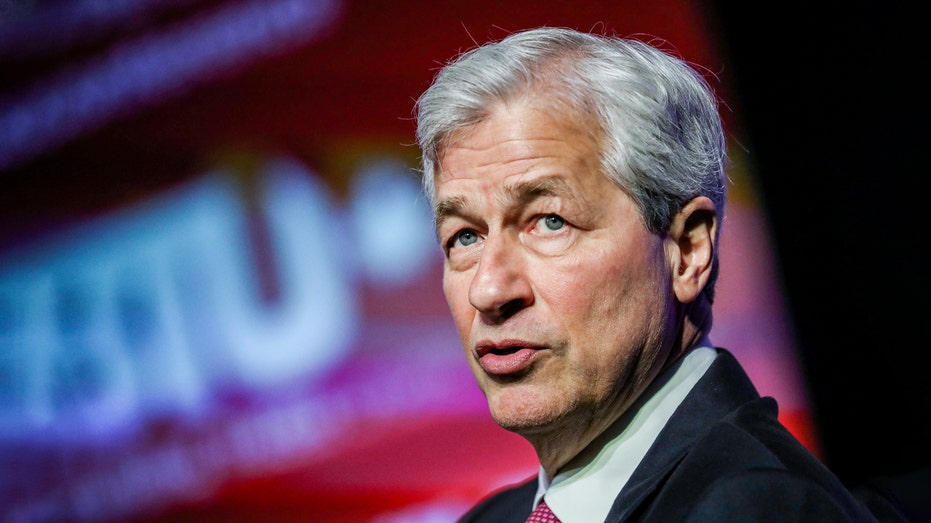JPMorgan CEO Jamie Dimon: Coronavirus in 'rear-view mirror' for consumers
Dimon said during an earnings call Tuesday that the pandemic is in the 'rear-view mirror' for consumers.
Sen. Warren 'belittles' JP Morgan CEO over bank overdraft fees: Bankers Assoc. CEO
Consumer Bankers Association CEO Richard Hunt reacts to Sen. Elizabeth Warren and JP Morgan CEO Jamie Dimon clashing over overdraft fees at the Senate hearing.
JPMorgan Chase & Co. CEO Jamie Dimon said COVID-19 appears to be "in the rear-view mirror" for American consumers, who are emerging from the pandemic with more money in their pockets and the desire to spend it.
| Ticker | Security | Last | Change | Change % |
|---|---|---|---|---|
| JPM | JPMORGAN CHASE & CO. | 322.35 | +12.34 | +3.98% |
During his second-quarter earnings call with investors on Tuesday, Dimon was asked for his take on how things look today amid talk of "peak inflation" and "peak growth" compared to 2011 or so as the U.S. emerged from the financial crisis from a few years prior.
JPMORGAN PROFIT MORE THAN DOUBLES, BUT REVENUE FALLS
"I think they are completely different, fundamentally," Dimon replied, saying, "coming out of the '09 crisis, the world was massively over-leveraged…the consumer was over-leveraged, companies were over-leveraged."
The CEO said that is not the case today.
"The pump is primed," Dimon said on the call. "The consumer, their house value is up, their stock values are up, their incomes are up, their savings are up, their confidence is up, the pandemic is kind of in the rear-view mirror – hopefully, nothing gets worse with it."

JPMorgan Chase & Co. CEO Jamie Dimon said COVID-19 appears to be "in the rear-view mirror" for American consumers, who are emerging from the pandemic with more money in their pockets and the desire to spend it. (REUTERS/Jeenah Moon/File Photo)
Dimon went on to say that consumers are "raring to go," pointing out, "You see it in home prices, you see it in auto purchases, you see it, I mean – it would be much higher except for supply constraints right now."
CLICK HERE TO READ MORE ON FOX BUSINESS
The JPMorgan chief said it's not just consumers who are doing well.
"Businesses equally are in good shape" coming out of the pandemic, he argued, saying, "They're not over-leveraged today."
Dimon acknowledged, "Corporate debt is a lot higher than it was, but so is corporate cash."





















